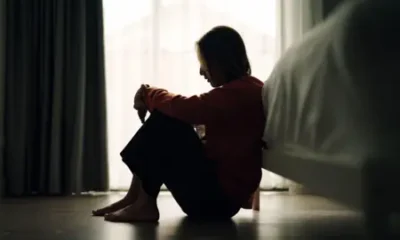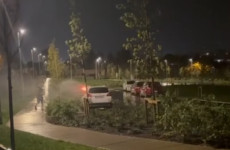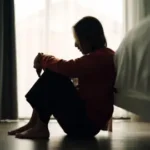Breaking News
MSF suspend activity in Gaza City amid Israeli offensive
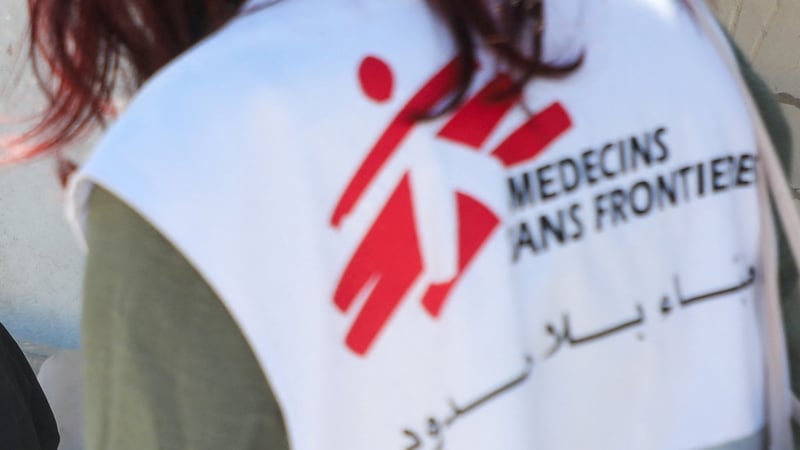
Read more on post.
Medical charity Doctors without Borders (MSF) has said it had been forced to suspend its work in Gaza City because of the ongoing Israeli offensive there.
The statement came after the Israeli military pressed its offensive against Palestinian Islamist group Hamas in Gaza City, from which hundreds of thousands of people have been forced to flee.
“We have been left with no choice but to stop our activities as our clinics are encircled by Israeli forces,” said Jacob Granger, MSF emergency coordinator in Gaza.
“This is the last thing we wanted, as the needs in Gaza City are enormous, with the most vulnerable people – infants in neo-natal care, those with severe injuries and life-threatening illnesses – unable to move and in grave danger.”
Israel’s military said in a statement that the air force had over the past day “struck over 140 targets throughout the Gaza Strip, including terrorists, tunnel shafts (and) military infrastructure”.
Read More: Ireland to prevent entry of Israeli ministers – Taoiseach
Netanyahu vows to ‘finish the job’
Gaza’s civil defence agency said Israeli forces killed at least 50 people across the Palestinian territory on Friday, as Prime Minister Benjamin Netanyahu vowed in a defiant UN address to “finish the job” against Hamas.
The Israeli military is pressing an offensive against the Palestinian Islamist movement in Gaza City, from which hundreds of thousands have been forced to flee in recent weeks.
The civil defence agency – a rescue force operating under Hamas authority – reported at least 50 people killed across the territory since dawn, 30 of them in Gaza City.
Israel’s military said the air force had during the past day “struck over 140 targets throughout the Gaza Strip, including terrorists, tunnel shafts (and) military infrastructure”.
Footage from Al-Shati refugee camp near Gaza City showed heavy damage to buildings after an air strike.
A barefoot young girl was among those searching through the rubble for belongings. Toppled poles left a web of cables on the ground.
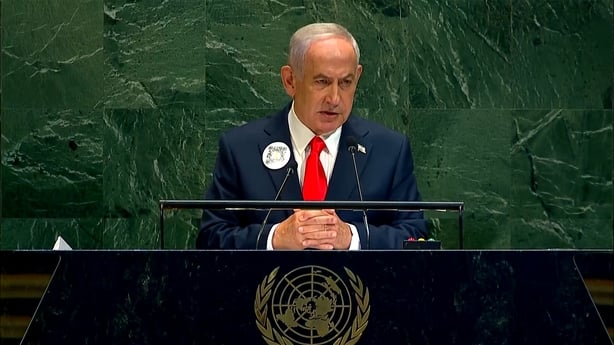
Mr Netanyahu said at the United Nations that the military had “crushed the bulk” of Hamas’s “terror machine” and sought to finish the job “as fast as possible.”
He said his speech was being partially broadcast in Gaza on military loudspeakers.
A statement from his office said the military had “taken over the telephones of Gaza residents and Hamas members”, and that the address was being broadcast live on the devices.
“It’s a lie – we haven’t received any messages or anything on the phone, and we didn’t hear any loudspeakers,” said Randa Hanoun, 30, a displaced Palestinian living in Deir el-Balah in the central Gaza Strip.
“This is just an attempt to stir fear in our hearts and to make us pay attention to Netanyahu’s speech… But we don’t care about his speeches and we don’t want to hear a single word from him.”
Two AFP contributors in southern Gaza and one in Gaza City said they hadn’t heard the speech on the loudspeakers, nor received anything on their phones.
‘Piled on top of each other’
Israel launched its ground offensive on Gaza City on 16 September. The military said yesterday that 700,000 Palestinians had fled the urban hub since late August.
The UN humanitarian office said the displacement of 388,400 people had been recorded since mid-August, most of them from Gaza City.
Um Youssef al-Shaer, a 50-year-old displaced Palestinian living in the tent city of of Al-Mawasi on the Mediterranean coast, told AFP that the area had become overcrowded as more and more Palestinians sought refuge there.
“We are piled on top of each other in a single tent – me, my husband, our six children and my husband’s elderly parents – 10 people in a small tent,” she said.
Over nearly two years, Israeli military operations in Gaza have killed at least 65,549 Palestinians, mostly civilians, according to the health ministry in Hamas-run Gaza, figures the UN considers reliable.
Hamas’s 7 October 2023 attack on Israel that sparked the war resulted in the deaths of 1,219 people, mostly civilians, according to an AFP tally based on Israeli figures.
Read More: Latest Middle East stories
Breaking News
Dating app sex assault victim urges others to seek immediate help
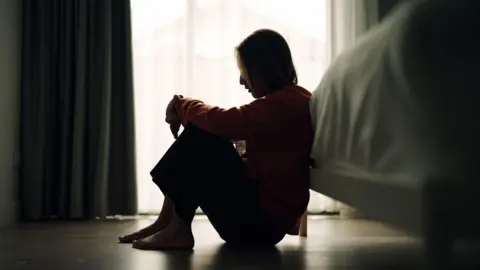
Read more on post.
Kevin SharkeyBBC News NI
A student who was sexually assaulted after meeting a man on a dating app has appealed to other survivors to seek immediate help to ensure there’s a record of the abuse.
The woman, who was 20 at the time, was attacked during a short-term relationship after she moved to Belfast to begin her university studies.
Last year, 25-year-old Fearghall Joseph Mulgrew, of Mullaghmoyle Road in Stewartstown, County Tyrone was jailed after pleading guilty to sexually and physically assaulting the woman.
Sophie, not her real name, believes her attendance at a sexual assault referral centre afterwards was crucial to the prosecution.
- Warning: Some readers may find parts of this article distressing
A judge at Belfast Crown Court said Mulgrew subjected the woman to a “degrading and frightening” experience, and he used her “as a sexual toy whose personal integrity and feelings were entirely subservient to your sexual desires”.
He was given a 22-month sentence in April 2024, serving 14 months on licence.
The court was told Mulgrew was a student in Belfast when he initially met the woman on the dating app Tinder in March 2021.
They agreed that the woman would come to his accommodation for “rough” intercourse at 03:00 GMT.
The woman said it was not something she had done before, but she agreed to try it, and the pair had consensual sex.
‘He wanted to do things his way’
The victim, who wishes to remain anonymous, has now spoken about her ordeal and explained that they had been in a casual relationship for about a month.
“The day of the incident he’d made it clear that he wanted to do things his way which included rough sexual contact. I hadn’t quite expected it to be what it was,” she told BBC News NI.
“He bit me, you know, in intimate areas where I had to kick him to get him off, to get him to stop, and even though we had a safe word he made it very obvious that that wasn’t even going to work, and he held my mouth closed with his teeth so I couldn’t say anything.
“That’s what sticks with me the most, the biting, it was all over my face.”
Reporting to police
Sophie, who has since left Northern Ireland, went to the Rowan sexual assault referral centre for help soon afterwards but she did not report the incident to the police until almost a year later.
She now believes her attendance at the centre was crucial to the subsequent prosecution of her abuser.
“I would advise that, even if you don’t know, because sometimes you can be so confused and so in shock that you don’t know but you think, then just get yourself looked at.
“For me, if I hadn’t gone to the Rowan, me reporting to the police would have been 100% more difficult. They wouldn’t have had my statement from the time, they wouldn’t have had photographs, and they wouldn’t have had all the swabs and things that they took.
“That evidence is invaluable especially if you are going into court,” she said.
 Reuters
ReutersHow are police tackling violence against women?
It has been three years since the Police Service of Northern Ireland (PSNI) launched an action plan to tackle violence against women and girls (VAWG).
The PSNI said it had made 5,042 arrests by the end of August 2025 under new legislation and conducted hundreds of targeted patrols.
They said they have also put in place four stalking protection orders using the new laws.
Each month, 84 arrests have been made on average for domestic abuse, there have been an average of 19 arrests each month for the offences of stalking, threatening and abusive behaviour, and 76 arrests each month for non-fatal strangulation.
In the 12 months to July 2025 there were 21,729 violence against women and girls (VAWG) offences recorded – a reduction of 4% compared to the previous 12 months.
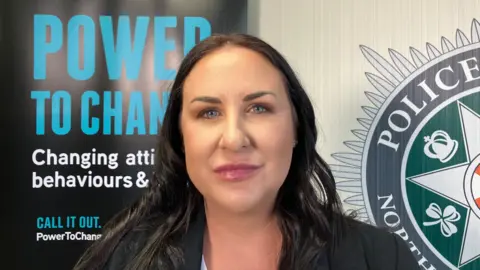
Det Ch Insp Leah Crothers, one of the PSNI’s tackling VAWG leads, said they “remain committed to doing everything” they can to prevent harm and call out unacceptable attitudes and behaviours.
“We have always been clear that it will take a societal effort to make a real change,” she added.
“Tackling violence against women and girls requires commitment from all — where perpetrators are held to account, communities stand together, and we work with partners to make every space safe. This remains our goal.”
Sophie said “too many men had blurred lines of consent and a misogynistic view on life”.
“I and so many other young women have suffered because of this. I am standing up to say it is not right and the only way to put a stop to it is to educate men and boys and for women like me to feel supported enough to report.”
If you are affected by domestic abuse, there is a range of support services available via the BBC’s Action Line page.
Breaking News
King and Queen set to meet Pope Leo in Vatican state visit

This post was originally published on this site.
The King and Queen will meet the new Pope during a state visit to Vatican City next month.
The couple will join Leo XIV, who was elected pope earlier this year after the death of Pope Francis, in late October to celebrate the 2025 jubilee year, Buckingham Palace said.
The Catholic Church typically marks a papal jubilee every 25 years.
Charles and Camilla‘s visit is expected to celebrate the ecumenical work by the Church of England and the Catholic Church, reflecting the Jubilee year’s theme of walking together as “Pilgrims of Hope”.
The King is Supreme Governor of the Church of England, a role which dates back to Henry VIII, who named himself Supreme Head of the Church of England after he was excommunicated by Pope Paul III and broke from the Catholic Church in the 16th century to marry Anne Boleyn.
The King and Queen had a meeting with Pope Francis just 12 days before he died.
Their historic state visit to the Vatican in early April was cancelled due to the then-pontiff’s poor health, but they managed to visit him privately during their trip to Italy.
The meeting with Francis, in what would be the final weeks of his life, was arranged at the last minute and took place on their 20th wedding anniversary on 9 April, with the pontiff wanting to personally wish them a happy anniversary.
Read more from Sky News:
Elon Musk and Prince Andrew named in latest Epstein files release
Watch moment diplomats walk out as Israeli PM speaks at UN
In an official message released following the news of Francis’s death on 21 April, the King said he and the Queen were “most deeply saddened”.
In May, Charles sent a private message to Pope Leo XIV congratulating him on his election, Buckingham Palace said.
Breaking News
‘My labour went on for 85 hours – now I know why’

Read more on post.
Jenny ReesWales health correspondent
When Lana Boocock gave birth to her first child, the labour lasted for a gruelling 85 hours.
Her baby then needed to spend time in neonatal intensive care.
Ms Boocock, now a mum-of-two, said difficulties giving birth to both of her children became easier to understand when she was later diagnosed with adenomyosis, a condition which is believed to affect more than one in 10 women.
Pregnant women with adenomyosis are at a greater risk of complications during labour, according to consultant gynaecologist Anthony Griffiths, but the risks are not managed because it remains under-diagnosed.
“It’s remarkably common, it’s just we’re not looking for it,” said Mr Griffiths.
Adenomyosis is a condition where the lining of the womb starts growing into the muscle in the wall of the womb.
It can cause painful periods, heavy bleeding, pelvic pain and pain during sex.
Dr Griffiths said pregnant women with adenomyosis also had a much higher rate of miscarriage, premature births and issues like pre-eclampsia, but that risks could be well managed with increased monitoring by healthcare professionals.
“What I’ve learned is that [during labour] your uterus fails to contract properly and you have a failure to progress with labour – and that, to me, is exactly what happened,” said Ms Boocock, 30, from Caerphilly.
“It just makes me upset to think of how many women have gone through labour and had worse outcomes than me, because of these complications.”
‘It was ruining my life’
Prior to her diagnosis, Ms Boocock – who also has endometriosis – had lived with debilitating symptoms that left her regularly needing to use a walking stick.
“I was haemorrhaging every couple of weeks, my iron levels were critically low and I had no energy to do anything,” she said.
The pain was centred in her hip and initially coincided with her menstrual cycle, but developed to be a constant, agonising problem.
She said after years of medical appointments and being told it was “just part of being a woman”, “probably IBS” or repeatedly being prescribed birth control, she paid for a hysterectomy, retaining her ovaries.
“At some points when I was so poorly before my surgery, I was suicidal. I was in so much pain it was ruining my life.
“But when I finally got to see an NHS gynaecologist and asked to be put on the list for a hysterectomy, the consultant’s words were: ‘You’re too young, you’ll lose your fertility’.
“But I didn’t want my fertility, I wanted my quality of life.”
A hysterectomy will remove symptoms of adenomyosis, though it is not a cure for endometriosis.
However, Ms Boocock said three months on from her surgery life was “just fantastic”.
“I would love these diseases to be taken more seriously,” she said.
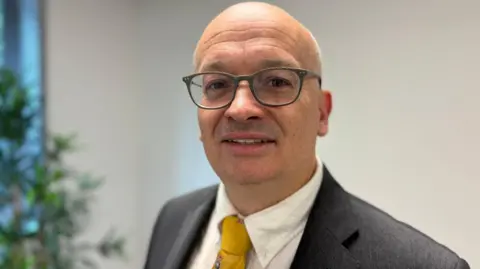
Mr Griffiths said medical textbooks from a decade ago defined adenomyosis as a “disease of ladies in their 40s” with heavy vaginal bleeding that was not easily controlled with medication.
“But that’s not true at all,” he said. “That’s a myth, mainly because we didn’t have tools to diagnose it.”
He said high quality MRIs were now detecting the condition in much younger women, and that around a third of the women he saw with endometriosis had some adenomyosis.
“Adenomyosis and endometriosis are different diseases, but there are similarities – people can present with heavy periods, agonizing pain often with periods but it can be throughout the menstrual cycle.”
Dee Montague-Coast, from the charity Fair Treatment for the Women of Wales – which chairs the women’s health Wales coalition – said there were more than 158,000 people living with adenomyosis in Wales.
“Yet in our experience, people won’t have heard of it before,” she said. “Often their healthcare professionals haven’t heard of it either.”
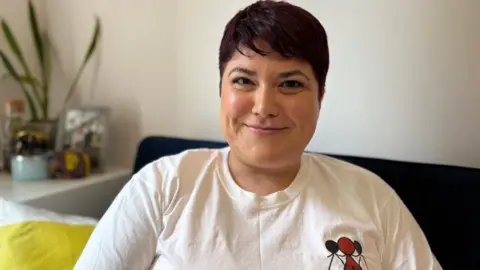
She explained that adenomyosis was only recently included on the NHS 111 website, following a petition by the charity.
“If people can’t find information on it, that harms patients, it contributes to diagnostic delays, but also harms healthcare professionals looking for this information.”
Mr Griffiths said treatment options for both adenomyosis and endometriosis had improved but there was limited diagnostic capability within the NHS.
“There’s obviously financial constraints everywhere, but unless you recognise there’s a problem – and a significant problem – you’re not going to allocate healthcare,” he said.
“We know it ruins lives. There’s high suicide within this bracket of people because they’ve got agonising, intractable symptoms, and yet are unable to get help.”
‘54,000 women waiting for care’
A spokesperson from the Royal College of Obstetricians and Gynaecologists (RCOG) said: “The relationship between adenomyosis and pregnancy outcomes is complex, and current research remains limited and inconclusive. More investment is needed in research to understand its potential impact on fertility, miscarriage, and premature birth.
“At the same time, urgent action is required to reduce gynaecology waiting lists, with over 54,000 women in Wales currently waiting for care for conditions such as adenomyosis – conditions that can have a severe impact on quality of life.
“We welcome the Welsh government’s recognition of adenomyosis in the Women’s Health Plan. However, women’s health continues to be chronically underfunded.
“The RCOG is calling on governments to prioritise investment in research, diagnostics, and treatments so that women affected by adenomyosis and similar conditions can access the care and answers they deserve.”
The Welsh Government said endometriosis and adenomyosis was “one of the eight priority areas in the Women’s Health Plan for Wales which outlines how we are determined to improve women’s health services and women’s experience of those services”.
“Funding of £3m is being used to deliver the actions in the plan, with a specific focus on establishing a Women’s Health Hub in every health board by March 2026, as well as supporting timely diagnosis and management of conditions including adenomyosis.”
If you have been affected by the issues raised in this story, information and support can be found via the BBC’s Action Line website.
-
Politics4 days ago
European Parliament snubs Orbán with vote to shield Italian MEP from Hungarian arrest
-
Culture3 weeks ago
Life, loss, fame & family – the IFI Documentary Festival in focus
-
Culture2 months ago
Fatal, flashy and indecent – the movies of Adrian Lyne revisited
-
Health4 days ago
EU renews support for WHO’s Universal Health Coverage Partnership
-
Environment7 days ago
Key oceans treaty crosses threshold to come into force
-
Culture1 week ago
Farewell, Sundance – how Robert Redford changed cinema forever
-
Culture4 days ago
Twilight at 20: the many afterlives of Stephenie Meyer’s vampires
-
Culture4 weeks ago
What is KPop Demon Hunters, and why is everyone talking about it?


